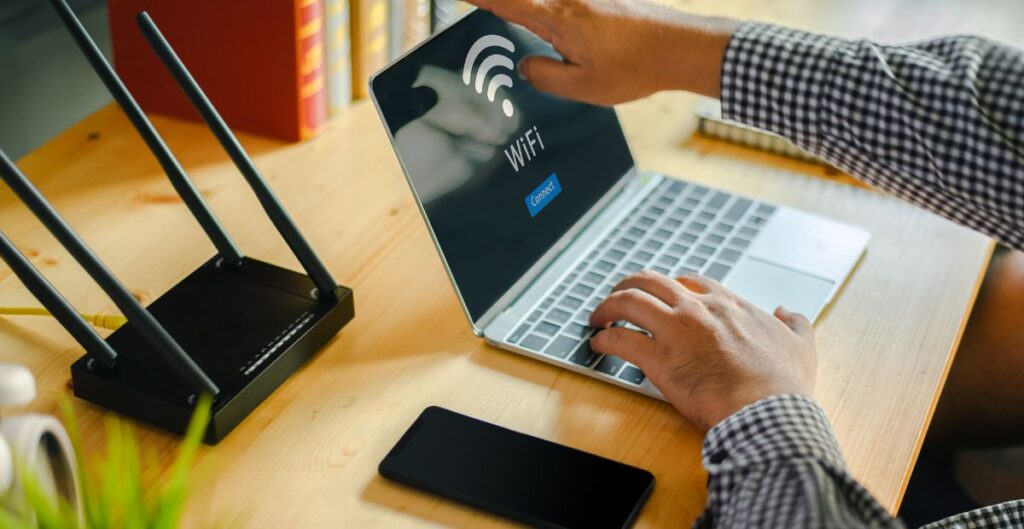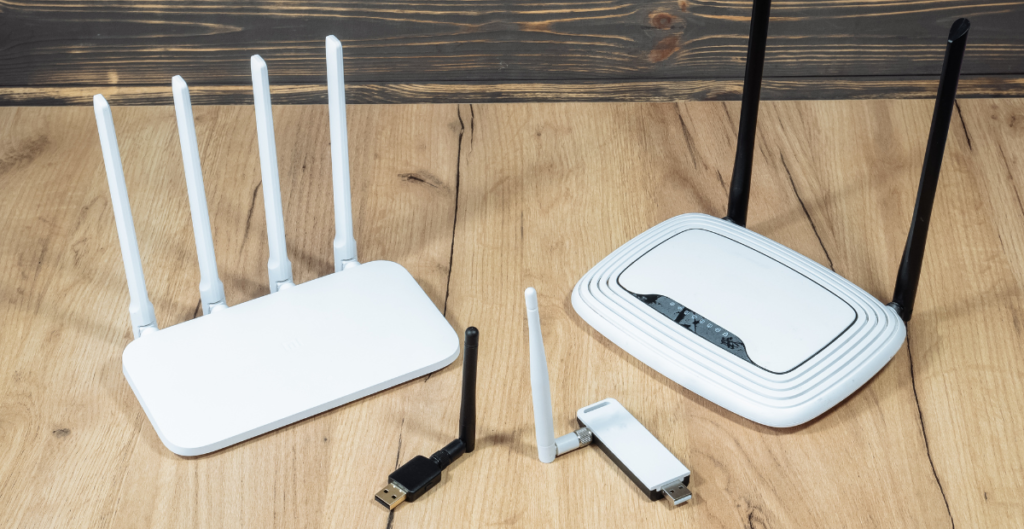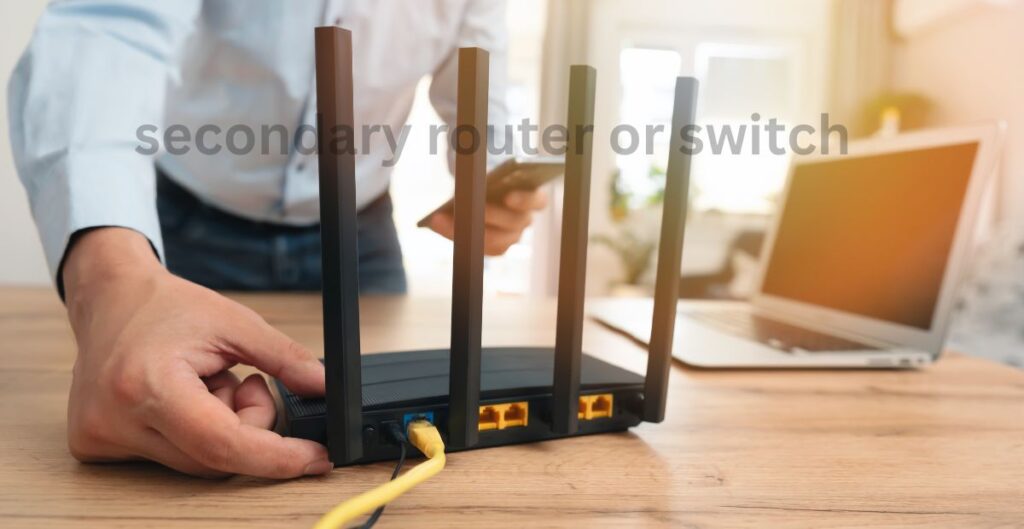If you’ve ever wanted your internet to work faster, smoother, and without buffering, there’s a good chance someone mentioned a gigabit switch. But what is it exactly?
In simple words, a gigabit switch is a device that connects different gadgets, like computers, smart TVs, and gaming consoles, on the same network, so they can talk to each other and share information at lightning-fast speeds.
Let’s break it all down in the easiest way possible.
- What is a Gigabit Switch 8-Port?
- What is a Gigabit Switch vs Ethernet Switch?
- All About Gigabit Switch 4 Port
- Gigabit Switch vs Normal Switch
- Why Use a 16-Port Gigabit Switch?
- The Power of a Gigabit Switch 24-Port
- What is a Gigabit Switch 2 Port?
- Why Choose a 10 Gigabit Switch?
- Step-by-Step: How to Set Up a Gigabit Switch
- FAQs
- Final Thoughts
What is a Gigabit Switch 8-Port?
A gigabit switch 8-port is perfect for homes and small offices. It lets you connect up to 8 wired devices to your internet. For example:
- Desktop computers
- Wi-Fi routers
- Printers
- Smart TVs
- Game consoles
- IP cameras
- Smart speakers
All these devices get a speed of up to 1,000 Mbps (1 Gbps), making everything faster and smoother.
Real-life example: My friend had an issue with lagging Netflix on his smart TV while his kids played games online. Once he added a gigabit switch, everything started working without delay.
What is a Gigabit Switch vs Ethernet Switch?
So, what is a gigabit switch vs Ethernet switch?
Let’s clear this up:
| Feature | Fast Ethernet Switch | Gigabit Ethernet Switch |
| Max Speed | 100 Mbps | 1,000 Mbps (1 Gbps) |
| Best For | Light browsing | Gaming, streaming, and work |
| Compatibility | Older devices | New + Old devices |
Bottom line: If you want speed and reliability, a gigabit switch is the better option.
Want more details? Here’s a helpful breakdown on Versitron.
All About Gigabit Switch 4 Port
A gigabit switch 4-port version is a simple, compact solution. It’s often used when you have just a few devices but still want fast connections.
This type of switch is:
- Easy to set up
- Great for home offices
- Affordable
- Reliable
How to Set It Up:
- Plug it into the wall for power
- Connect your modem or router to port 1
- Add your devices to other ports using Ethernet cables
- That’s it, you’re connected
Gigabit Switch vs Normal Switch
Let’s explain gigabit switch vs normal switch in plain terms.
- A normal switch offers a 100 Mbps speed
- A gigabit switch offers 1,000 Mbps speed
That means a gigabit switch is 10 times faster than a normal one.
With a normal switch, you may face:
- Slower file transfers
- Lag during online games
- Buffering videos
With a gigabit switch, everything runs smoother, even if multiple people are using the internet.
Why Use a 16-Port Gigabit Switch?
A gigabit switch 16-port is best when you have lots of devices to connect. Think:
- A smart home with dozens of devices
- A small office
- A classroom setup
You won’t need to unplug one device to connect another. Just plug in everything and go.
The Power of a Gigabit Switch 24-Port
When you need more ports, the gigabit switch 24-port is ideal for:
- Medium to large offices
- IT labs
- Security camera networks
This kind of switch can handle many users at once, and it often comes with added features like:
- VLAN support
- Power over Ethernet (PoE)
- Remote monitoring
What is a Gigabit Switch 2 Port?
A gigabit switch 2-port is small but useful. It’s mostly used in point-to-point networks where only two devices need to be connected, like a server and a storage device.
Benefits:
- Simple to use
- No power loss
- Space-saving design
Why Choose a 10 Gigabit Switch?
A 10-gigabit switch takes things to a whole new level. It’s mainly used in places that need super-high-speed data transfer:
- Video production studios
- Large businesses
- Data centers
You’ll need special cables (Cat6a or Cat7) and hardware that supports 10 Gbps to use it properly.
Learn more about 10GbE switches on QSFPTEK.
Step-by-Step: How to Set Up a Gigabit Switch
Setting up a gigabit switch is easier than setting up a TV.
Here’s how:
- Step 1: Plug the switch into a power outlet
- Step 2: Connect your internet router to port 1 using an Ethernet cable
- Step 3: Connect your other devices (computers, TVs, etc.) to the remaining ports
- Step 4: That’s it. No software or extra steps needed
Everything starts working on its own.
FAQs
What is a gigabit switch used for?
A gigabit switch is used to connect many devices in a wired network, allowing fast data transfer between them. It’s great for homes, offices, and anywhere multiple devices need stable internet.
What is the difference between a gigabit switch and a normal switch?
The key difference is speed. A normal switch runs at 100 Mbps, while a gigabit switch runs at 1,000 Mbps, which is 10x faster. That means smoother streaming, faster downloads, and better performance overall.
Do I really need a gigabit switch?
If you have several devices that use a lot of internet (like smart TVs, game consoles, or security cameras), then yes, a gigabit switch will help your network run smoother and more reliably.
Will a gigabit switch make my internet faster?
It won’t increase your provider’s internet speed, but it will improve the way your devices share that speed. It reduces delays and keeps your connection stable when many devices are online at the same time.
Final Thoughts
So now you understand what is a gigabit switch, it’s a simple but powerful tool that helps your devices stay connected at top speeds. Whether you’re working from home, gaming online, or just want a smoother streaming experience, a gigabit switch is a smart upgrade.
From 2-port to 24-port options, even 10Gbps models, there’s something for everyone. Just pick what fits your needs, plug it in, and enjoy the speed.






